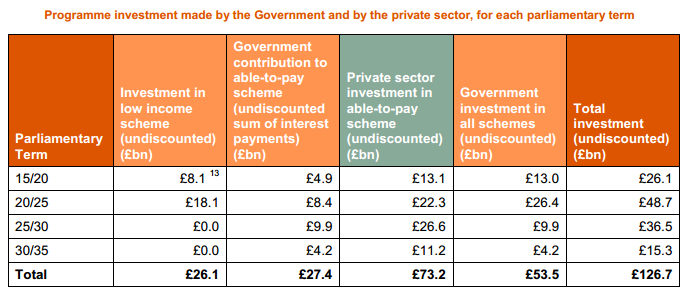Our website uses cookies and similar technologies to provide you with a better service while searching or placing an order and for analytical purposes.
By clicking the Allow Cookies button, you are informing OBAS UK Ltd that you agree to the use of these cookies as detailed in our
Privacy Policy.
Construction industry gets behind report detailing benefits of improving UK’s housing stock
 Research published recently demonstrates that by adopting a fresh approach to becoming more energy efficient the UK’s households and government could save billions of pounds.
Research published recently demonstrates that by adopting a fresh approach to becoming more energy efficient the UK’s households and government could save billions of pounds.
Building the Future: The economic and fiscal impacts of making homes energy efficient was commissioned by the Energy Bill Revolution and suggests that if the nation invested in making the UK’s housing stock much more energy efficient the scheme would not only create opportunities in the energy saving supplies and fittings market but would crucially more than pay for the investment.
The report which was produced by Verco and Cambridge Economics showed the annual Gross Domestic Product could gain £13.9bn in 2030 with each pound being put into the programme by the government resulting in a £3.20 return.
The proposed programme would see the UK’s housing stock being raised to a minimum of energy rating Band C on the Energy Performance Certificate (EPC) resulting in £8.6bn worth of energy savings per year by 2030 (an average of £372 per household).
The report found that were this to be considered as an infrastructure investment it would be one of the most effective uses of funds, being classified as high value for money and seeing the scheme making a £1.27 return to HM Treasury.

This kind of programme would be great news for the construction industry with up to 108,000 new jobs created in the insulation market and although we've seen growth in sales in a number of energy efficiency products included insulated breather membrane the insulation market contracted by 22% in 2013.
Ed Matthew, director of the Energy Bill Revolution, said: "We have one of the most badly insulated housing stocks in Europe and as a result a truly woeful record on winter deaths and fuel poverty. Fixing Britain’s badly-insulated homes won’t just save lives, it will provide a massive economic boost to the UK economy and it pays for itself. There is now an overwhelming case for it to be made a top UK infrastructure investment priority."
John Alker, director of policy and communications at the UK Green Building Council, said: "We've now got the hard evidence to prove what many have been saying for a long time: Government spending on energy efficiency is not a frivolous drain on the public purse, but a rock solid investment proposition for UK Plc."
Joanne Wade, executive director of the Association for the Conservation of Energy (ACE), said: "As demonstrated by the report, energy efficiency investment delivers net benefits for businesses, consumers and the Government itself."
Despite the benefits of the proposed program it seems unlikely the next government won’t implement the reports suggestions, as Josh Robson, head of public affairs at Knauf Insulation, said: "No party has yet set out a plan that matches the scale of the problem. Or to turn the language on its head – as this revolutionary new report has done – no party has yet committed to take forward a home energy efficiency programme that will deliver a leaner, healthier, richer, more competitive country while also making HM Treasury money!
"The first step towards getting a national rollout of warm homes underway is giving businesses the confidence to invest. Yet for businesses delivering energy efficiency, there is no long-term certainty. The kind of short-term policy linked to energy efficiency will never develop the supply chains, innovative solutions and economies of scale needed.
"If a real difference is to be made, all political parties must commit to realistic, long-term, plans for energy efficient homes. Only then will real changes come for the millions of people struggling with unaffordable energy bills."
When the rest of the construction industry returns to some semblance of normality, there is a definite need for some kind of support to help stimulate a market which perhaps has too long-term a benefit for individual consumers to act upon, but which collectively would have a huge impact on the UK’s economy.
Visit the http://www.energybillrevolution.org


